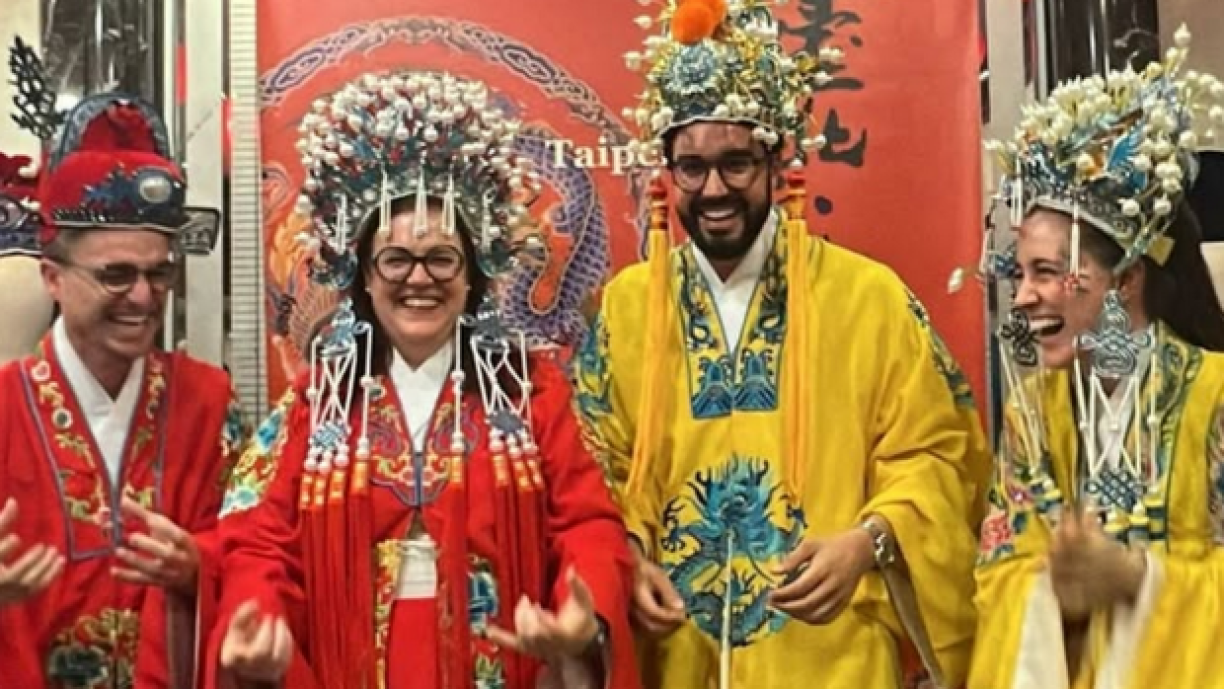
Luxembourg maintains close economic ties with the People’s Republic of China, evidenced by the fact that seven of China’s largest banks run their European operations through the Grand Duchy. Like most countries worldwide, Luxembourg does not officially recognise Taiwan – which China considers part of its territory – as an independent state.
Yet in April, MPs Liz Braz and Ben Polidori of the Luxembourg Socialist Workers’ Party (LSAP), and Stéphanie Weydert and Ricardo Marques of the Christian Social People’s Party (CSV) undertook a visit to Taiwan. Though not unprecedented, the trip has stirred discussion.
The question wasn’t whether the MPs actually went, as numerous photos and videos posted on social media confirm the visit. The two CSV and two LSAP politicians appeared to have had an engaging experience, but all four stressed that it was not a holiday.
One key focus of the trip was human rights, as CSV MP Stéphanie Weydert highlighted. She described meeting with a human rights commission and being particularly struck by speaking to a former prisoner who had been tortured. The prison visit, she said, left a lasting impression on her and underlined the importance of human rights advocacy.
Another major topic was trade policy. CSV’s Ricardo Marques noted that it was insightful to see how Taiwan has built long-term strategies, particularly around the global distribution of semiconductors and other high-tech products, to maintain a foothold in the European market.
From LSAP’s Liz Braz’s perspective, the visit to Taiwan did not contradict Luxembourg’s One-China policy. She pointed out that both the EU and the United States have supported Taiwan for decades, not just economically and culturally, but also through parliamentary engagement. She cited the Luxembourg Chamber’s recent support for Taiwan’s request to be granted observer status at the World Health Organization as an example of this ongoing engagement.
All four MPs largely agreed that communication around the purpose of the trip could have been better handled. For Ben Polidori of the LSAP, the experience was something of a balancing act.
He explained that they had aimed to be transparent about what they were doing, especially given the value of their time abroad. However, he acknowledged that more could have been done to clarify why such a mission took place, suggesting that the lack of a communications specialist might have contributed to some confusion.
Chamber President Claude Wiseler refrained from passing judgement on the visit or how it was communicated. He emphasised that it’s not the role of the President of the Chamber to assess what MPs do in their personal capacity.
He clarified that intervention from the Chamber President is typically only required when a situation arises that is seriously problematic for the institution itself – which, he said, was not the case here.
Moreover, because of Luxembourg’s One-China policy, this was not an official Chamber mission. Still, the Chamber was not entirely uninvolved.
He explained that the MPs had received personal and individual invitations, which they had accepted. Their only formal obligation was to declare the trip in the Chamber for transparency reasons, which they all did.
There is no clear answer on how much the trip cost. The Chamber said that the MPs did not disclose expenses, and none of the four were able to give an estimate when asked. It was confirmed that flights, accommodation, and meals during the official programme were covered by Taiwan. Any spending outside the programme came from the MPs’ own pockets.
Looking ahead, the Chamber plans to organise more official foreign missions, with additional funding to support this. According to Wiseler, Luxembourg has much to gain by having MPs actively represent national positions at international institutions and in bilateral relations, especially as a small country on the global stage.